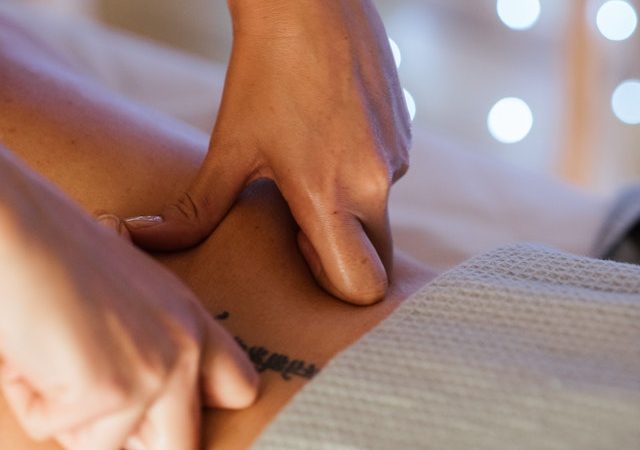Introduction: Dealing with muscle pain can be a frustrating experience that affects your daily activities and quality of life. While professional medical advice is important for severe or persistent pain, there are several effective home remedies that can provide soothing relief for mild to moderate muscle pain. In this article, we will explore DIY home
Introduction: Dealing with muscle pain can be a frustrating experience that affects your daily activities and quality of life. While professional medical advice is important for severe or persistent pain, there are several effective home remedies that can provide soothing relief for mild to moderate muscle pain. In this article, we will explore DIY home remedies that you can try to alleviate muscle pain and promote relaxation.
- Hot and Cold Compresses: Apply a hot or cold compress to the affected area to help soothe muscle pain. For acute pain or inflammation, use a cold compress (ice pack) wrapped in a thin cloth for about 15 minutes at a time. For chronic pain or muscle tightness, use a hot compress (heating pad or warm towel) for 20 minutes to promote blood flow and muscle relaxation.
- Epsom Salt Bath: Taking a warm bath with Epsom salt can help relieve muscle pain and reduce inflammation. Add two cups of Epsom salt to a bathtub filled with warm water and soak for 20 minutes. The magnesium sulfate in Epsom salt can be absorbed through the skin, promoting muscle relaxation and soothing discomfort.
- Gentle Massage: Massage the affected area gently to help alleviate muscle pain. Use your hands, fingers, or a foam roller to apply gentle pressure and knead the muscles. You can also use massage oils or creams for smoother movement. Massage helps improve blood circulation, reduce muscle tension, and promote relaxation.
- Stretching Exercises: Performing gentle stretching exercises can help relieve muscle pain and improve flexibility. Focus on stretching the affected muscles in a slow and controlled manner. Hold each stretch for 20-30 seconds without bouncing. Remember to breathe deeply and never push yourself to the point of pain.
- Herbal Remedies: Certain herbs and herbal remedies can provide natural relief for muscle pain. For example, applying arnica gel or cream topically can help reduce inflammation and relieve sore muscles. Other herbal options, such as chamomile, lavender, or peppermint essential oils, can be diluted with a carrier oil and applied to the affected area for soothing effects.
- Stay Hydrated: Proper hydration is crucial for muscle health and recovery. Drink an adequate amount of water throughout the day to prevent dehydration, which can exacerbate muscle pain. Staying hydrated helps flush out toxins, maintains muscle function, and promotes optimal muscle health.
- Rest and Relaxation: Allowing your body enough time to rest and recover is essential for soothing muscle pain. Avoid activities that strain or worsen the affected muscles. Get enough sleep and practice relaxation techniques such as deep breathing, meditation, or gentle yoga to promote overall relaxation and muscle healing.
- Balanced Nutrition: Maintaining a balanced diet rich in anti-inflammatory foods can help reduce muscle pain. Include foods high in omega-3 fatty acids (such as fatty fish, walnuts, and flaxseeds), antioxidants (found in colorful fruits and vegetables), and spices with anti-inflammatory properties (like turmeric and ginger) in your meals.
- Over-the-Counter Pain Relievers: Nonsteroidal anti-inflammatory drugs (NSAIDs) such as ibuprofen or naproxen sodium can be used for short-term relief of muscle pain. Follow the recommended dosage and instructions provided on the package. However, it’s important to consult a healthcare professional before taking any medication, especially if you have underlying health conditions.
- Maintain Good Posture: Practicing good posture helps prevent muscle imbalances and reduces the risk of developing muscle pain. Whether sitting or standing, maintain an upright position with your shoulders back and relaxed. Use ergonomic supports, such as pillows or lumbar rolls, to maintain proper alignment and support for your back.
Conclusion: When faced with muscle pain, these DIY home remedies can provide effective relief and promote healing. Experiment with different remedies to find what works best for your specific needs. However, if your muscle pain persists or worsens, it’s important to consult a healthcare professional for a proper diagnosis and appropriate treatment.

















Leave a Comment
Your email address will not be published. Required fields are marked with *